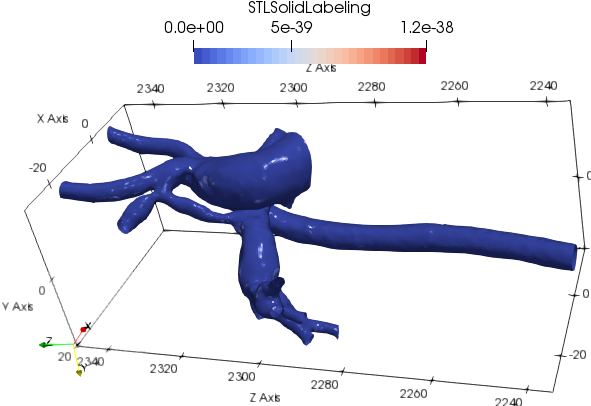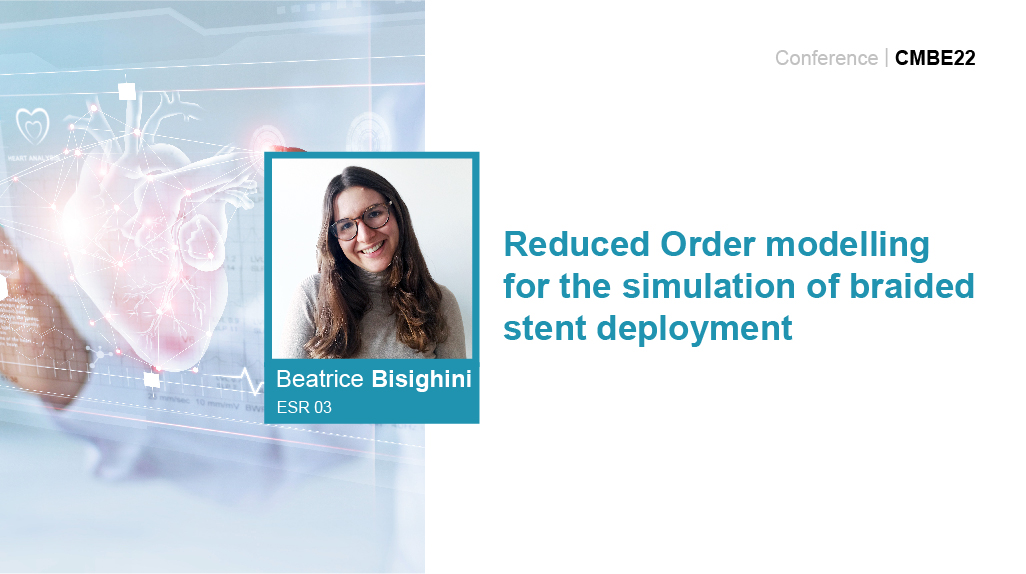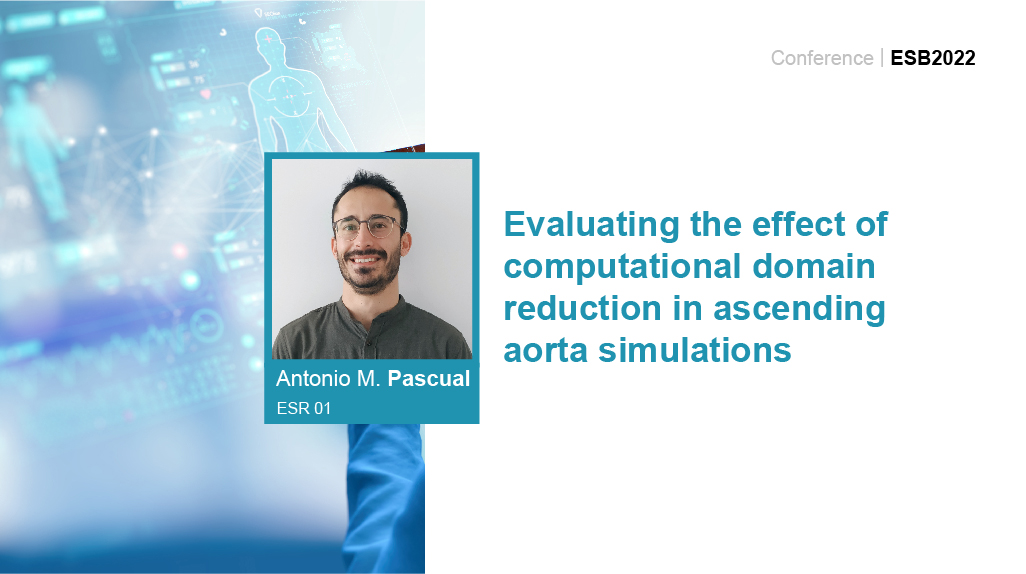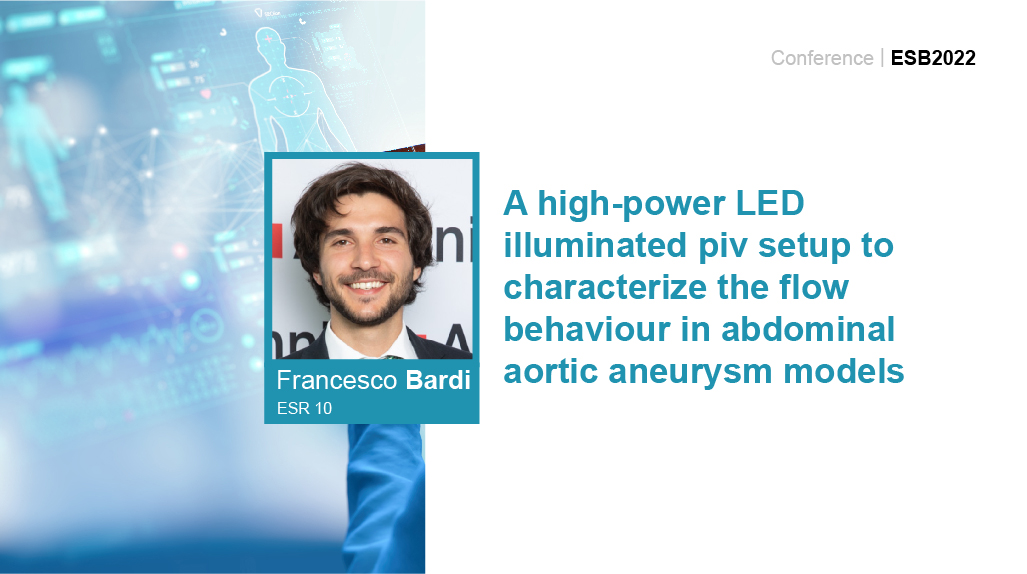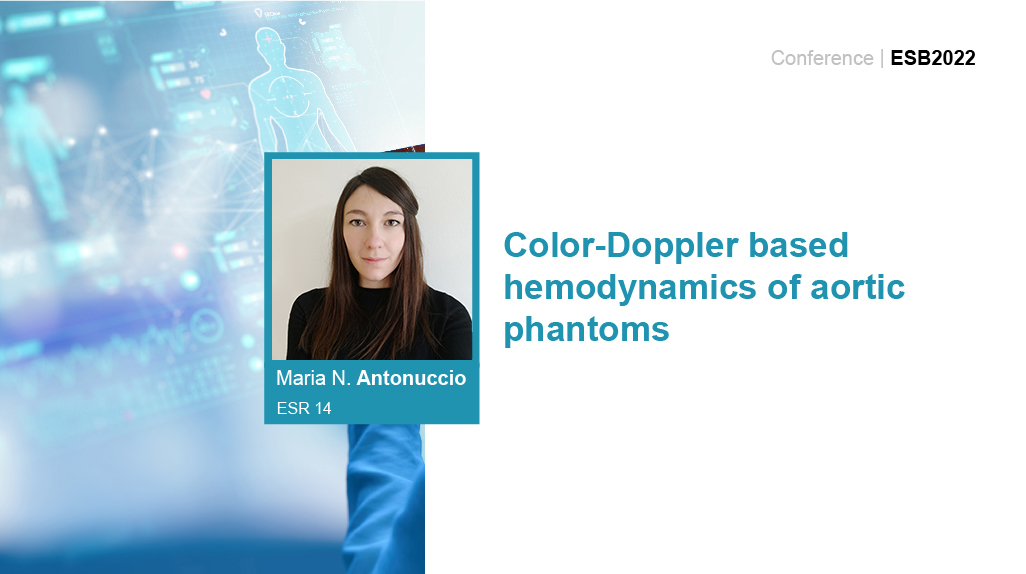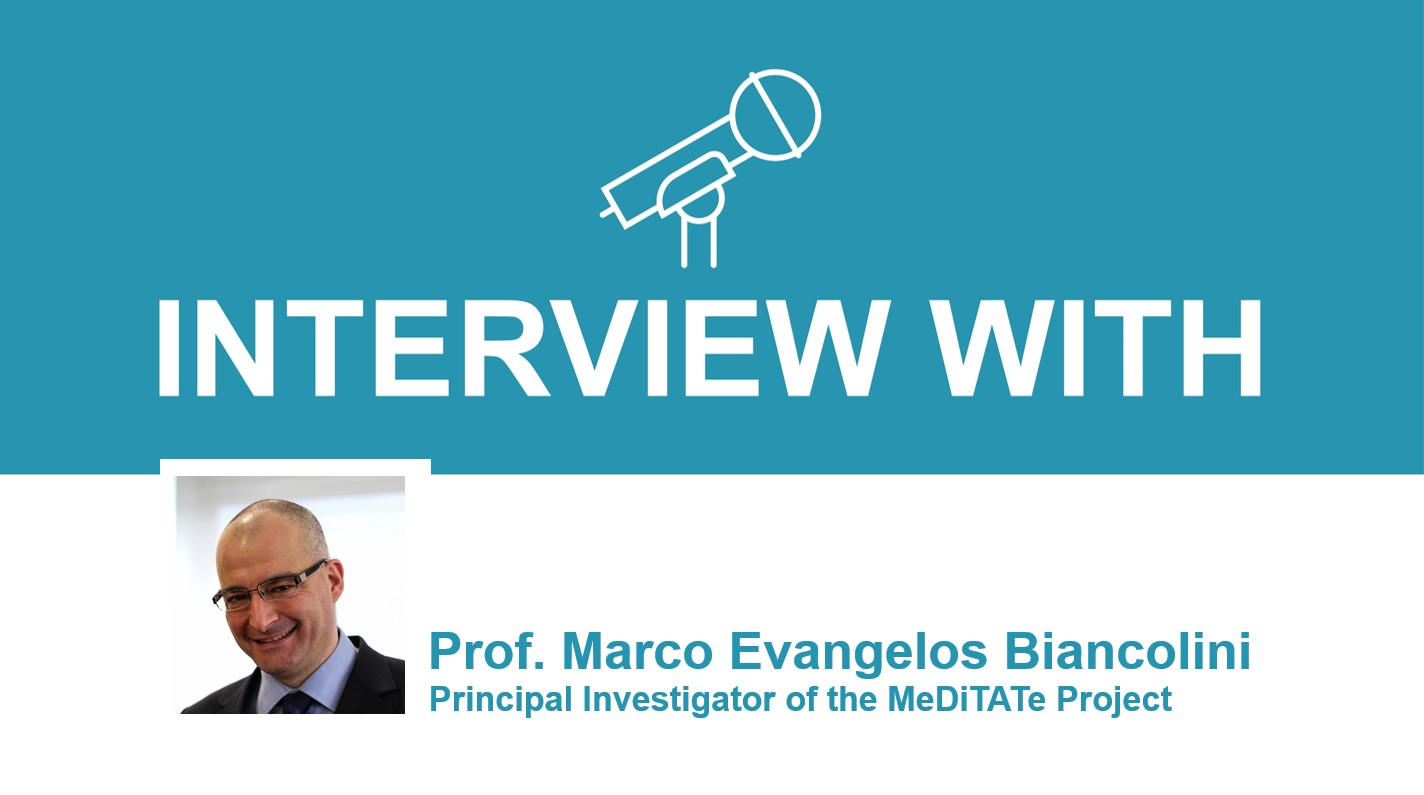The MeDiTATe project will participate in the 11th European Solid Mechanics Conference, ESMC 2022





The MeDiTATe project will be participating in the 11th European Solid Mechanics Conference, ESMC 2022. The event will be held under the auspices of the European Mechanics Society in Galway (Ireland), from July 4th to 8th, 2022.
Four of our Early Stage Researchers will be presenting their activities at this event. Here’s the complete list of the participants with their work.
ESR 03, Beatrice Bisighini: A methodology for in silico simulation of braided stent deployment using signed distance field.
With the aim of developing a surgical assistive tool for cerebral aneurysms treatment, a fast methodology is proposed to perform in silico simulation of braided stents deployment inside idealised and patient-specific models.
ESR 07, Federica Galbiati: Micromechanical framework for modeling homeostatic driven growth and remodeling in soft tissues.
Growth in soft tissues is the continuous process of mass deposition/reabsorption to maintain a homeostatic mechanical state. This process plays an important role in both physiological and pathological development of tissues. Since mid-1990’s, many efforts have been addresses to develop mathematical models that could describe the mechanobiological adaptation of tissues. This work presents a framework based on continuum micromechanics and multiscale hypoelasticity to describe growth in soft tissues, extending the classical growth model towards the realm of truly multiscale models.
ESR 08, Rahul Vellaparambil: Structural analysis of endovascular stent designs modelled from auxetic unit cells.
Current generations of endovascular stents utilized for endovascular aneurysm repair (EVAR) face intricate issues of endo-leaks, device migration and stenosis. Auxetic designs have been recently analyzed for coronary stents due to unique properties of fracture toughness, indentation resistance among others to combat stent mal-apposition which also contributes to above issues in EVAR. In this work, stent designs comprising of auxetic unit cells were evaluated for endovascular applications by comparing their bending flexibility & radial compressive properties to a standard diamond stent design.
ESR 11, Monica Emendi: In silico and in vitro analysis of guidewire’s insertion in a deformable AAA model.
In this study, a FEM analysis of the insertion of a super-stiff guidewire in an aneurysmatic abdominal aorta has been conducted and compared to experiments performed on a silicone-molded model. The aim is to obtain a prediction of the guidewire’s path and aortic deformations during EVAR to improve image fusion and lower the amount of contrast agents and radiations during the procedure.

